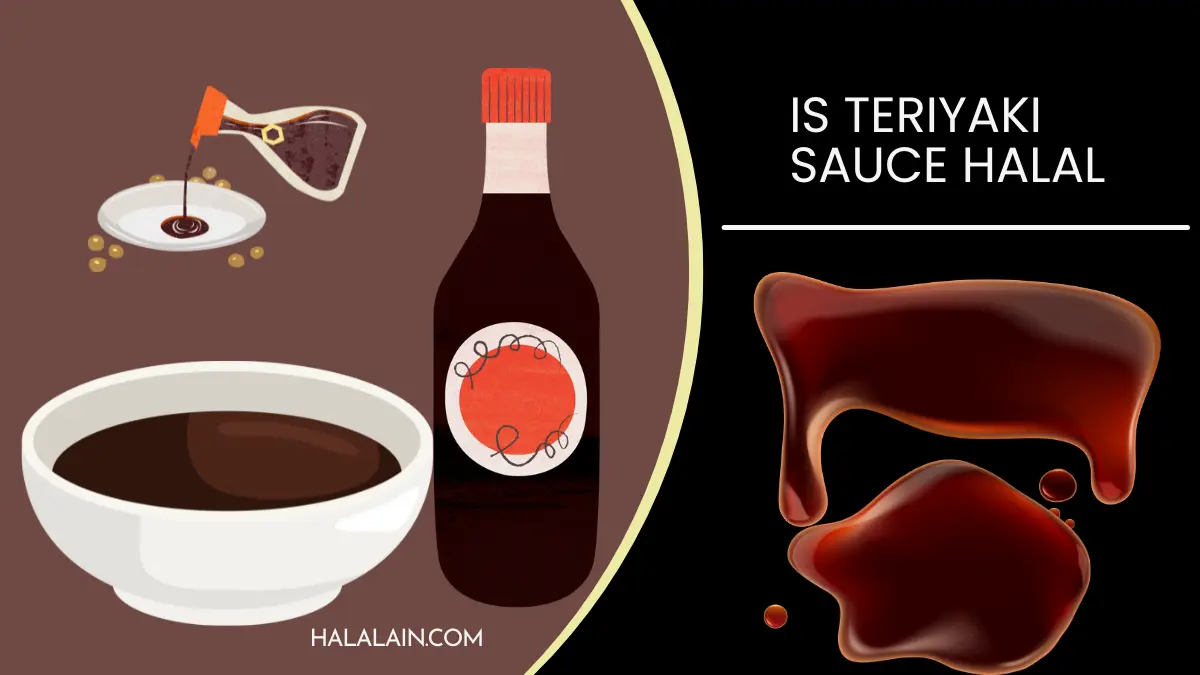The term “halal” refers to what is permissible or lawful in traditional Islamic law. For food and beverages, halal signifies products that adhere to specific dietary regulations. These rules ensure that Muslims consume items that are pure, clean, and in accordance with their religious beliefs. One common question that arises is whether certain sauces, such as teriyaki sauce, are halal.
What is Teriyaki Sauce?
Teriyaki sauce is a popular Japanese condiment known for its sweet and savory flavor. It is commonly used in marinades, glazes, and as a dipping sauce for various dishes, including grilled meats, fish, and vegetables. The basic ingredients of teriyaki sauce typically include soy sauce, sugar, mirin (a type of rice wine), and sometimes ginger and garlic.
Is Teriyaki Sauce Halal?
To determine if teriyaki sauce is halal, we need to examine its ingredients and preparation methods. Halal criteria for sauces generally include:
- No Alcohol: Alcohol is prohibited in Islam, so any sauce containing alcohol or alcoholic beverages is not halal.
- No Haram Ingredients: Ingredients derived from non-halal sources, such as pork or non-halal meat, make the sauce impermissible.
- Certified Halal: A sauce that is certified halal by a reputable organization ensures that it meets all halal standards.
Common Ingredients in Teriyaki Sauce
Understanding the common ingredients in teriyaki sauce can help determine its halal status:
- Soy Sauce: Made from fermented soybeans, wheat, salt, and water. It can be halal if the fermentation process does not involve alcohol.
- Sugar: Typically halal, but some processing methods might raise concerns.
- Mirin: A sweet rice wine that contains alcohol, making it non-halal.
- Ginger and Garlic: Both are halal and commonly used to enhance flavor.
The Alcohol Concern : Mirin in Teriyaki Sauce
One of the primary concerns with teriyaki sauce is the inclusion of mirin, which contains alcohol. Traditional mirin is a sweet rice wine, and its alcohol content disqualifies it from being halal. However, there are alcohol-free alternatives available, such as halal mirin or mirin substitutes made with non-alcoholic ingredients.
Halal Alternatives to Traditional Teriyaki Sauce
For those seeking halal teriyaki sauce, several alternatives can be used:
- Homemade Halal Teriyaki Sauce: Making your own sauce allows you to control the ingredients. Use soy sauce, sugar, and a mirin substitute like apple cider vinegar with a bit of sugar.
- Halal-Certified Brands: Look for brands that offer halal-certified teriyaki sauce. These products have been verified to meet halal standards.
- Alcohol-Free Store-Bought Options: Some brands produce alcohol-free teriyaki sauce. Always check the label for halal certification or ensure no alcohol is listed in the ingredients.
How to Verify Halal Certification
When purchasing teriyaki sauce, it’s essential to verify its halal status. Here’s how:
- Check the Label: Look for a halal certification symbol on the packaging.
- Research the Brand: Visit the brand’s website or contact customer service to inquire about halal certification.
- Ingredient List: Review the ingredient list for any non-halal components, especially alcohol or derivatives.
Halal Teriyaki Sauce Recipe
Creating your own halal teriyaki sauce is a straightforward process. Here’s a simple recipe:
- Ingredients:
- 1/2 cup soy sauce (ensure it’s halal)
- 1/4 cup sugar
- 2 tablespoons apple cider vinegar (as a mirin substitute)
- 1 teaspoon minced garlic
- 1 teaspoon minced ginger
- 1 tablespoon cornstarch mixed with 2 tablespoons water (optional, for thickening)
- Instructions:
- Combine soy sauce, sugar, apple cider vinegar, garlic, and ginger in a saucepan.
- Bring to a boil over medium heat, stirring until sugar dissolves.
- Reduce heat and simmer for 5-10 minutes.
- For a thicker sauce, add the cornstarch mixture and stir until thickened.
- Remove from heat and let cool. Store in a sealed container in the refrigerator.
Common Misconceptions About Teriyaki Sauce
There are several misconceptions about the halal status of teriyaki sauce:
- All Teriyaki Sauce is Haram: Not all teriyaki sauce is haram. It depends on the ingredients used.
- Soy Sauce Always Contains Alcohol: While some soy sauces contain alcohol from the fermentation process, many are alcohol-free and halal.
- No Halal Alternatives Exist: There are numerous halal-certified and alcohol-free alternatives available.
Conclusion: Making Informed Choices
Determining whether teriyaki sauce is halal involves careful consideration of its ingredients and preparation methods. By understanding what makes a product halal and exploring available alternatives, Muslims can enjoy this flavorful condiment while adhering to their dietary restrictions. Always check for halal certification or make your own sauce to ensure it meets halal standards.
FAQs About Halal Teriyaki Sauce
1. Can I use regular soy sauce in homemade halal teriyaki sauce?
Yes, as long as the soy sauce is alcohol-free and does not contain any haram additives.
2. What can I substitute for mirin or sake in teriyaki sauce?
You can use rice vinegar or apple cider vinegar mixed with a bit of sugar as a substitute for mirin or sake.
3. Are all commercially available teriyaki sauces non-halal?
Not necessarily. Some brands offer halal-certified teriyaki sauces or those made without alcohol.
4. How can I ensure my homemade teriyaki sauce is halal?
Use alcohol-free soy sauce and substitute mirin or sake with halal alternatives like rice vinegar or apple cider vinegar.
5. What does halal certification mean for this?
Halal certification means that the product has been inspected and approved by a recognized halal certification authority, ensuring all ingredients and the production process comply with Islamic dietary laws.
Conclusion: Ensuring Halal Compliance
Determining whether teriyaki sauce is halal involves scrutinizing its ingredients and preparation methods. While traditional teriyaki sauce may contain alcohol, there are numerous alternatives and halala certified options available. By reading labels, seeking Islamic certification, and making homemade versions, Muslims can enjoy the delicious flavor of teriyaki sauce while adhering to their dietary restrictions. Embracing these practices ensures that one’s diet remains in harmony with their faith.

